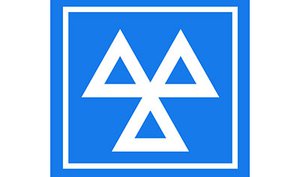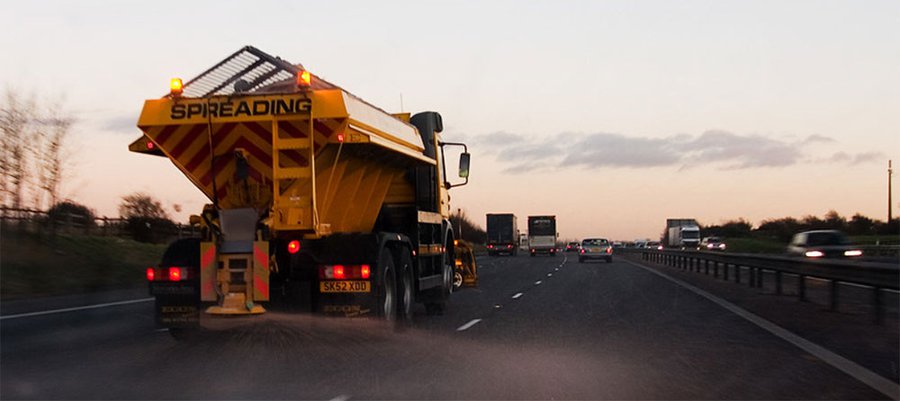Wellbeing Wednesday: Road Safety Awareness Week

Wintry weather and dark days are with many of us for the next few months, which means driving conditions are considerably more challenging whether you’re driving to work, for work, to school or for essential shopping.
With Road Safety Awareness Week starting on Monday, we asked Unipart Logistics Head of Transport Paul Ellis to share advice on preparing yourself and your vehicle for winter motoring.

MOT and servicing
Before you start driving, it’s crucial you make sure your car is mechanically ready for the road.
Earlier this year, the government automatically extended MOTs for light vehicles like cars and motorcycles by six months. With winter approaching you must ensure your vehicle is in a roadworthy condition, with MOT and service schedules up to date.

Winter car essentials
The season can throw up a range of cold and dark motoring situations so make sure you’re prepared for them.
You need to maintain your visibility, so always have an ice scraper and de-icer for your windscreen to hand. It’s darker, so keep a torch in your car in case you breakdown, in which case you’ll also need a phone and the ability to charge it so you can contact your family, friends, colleagues and/or recovery services.
A first aid kit and empty fuel can will mean you can tackle more serious issues proactively while help is on the way.
Keep a road atlas in your car to complement your sat nav, or in case of loss of power. If you’re taking an unfamiliar journey, print your route beforehand.
Finally, keep a pair of sunglasses in your car. Low winter sun can be very distracting, even more so when it’s reflecting off a blanket of white snow.
You can find a full checklist on the AA website.
Driving in snow and ice

Follow these simple steps to ensure you stay safe in wintry conditions.
Tyres - keep at least 3mm of tread. Consider getting all-weather tyres for better grip.
Battery and electrics - winter places extra demand on your car’s battery thanks to lights, heating and wipers. Prolong your battery life by turning off these electrical loads before you start the car.
Antifreeze - you need a 50/50 mix of antifreeze and water for the winter. Check your levels regularly and make sure you have the right type of antifreeze for your model of car.
Windscreen - snow and flog reduce your visibility further. Ensure your windscreen is clean inside and out, and remove any snow from your roof before each journey.
Be seen - make sure your lights are working and the lenses are clean. Keep your number plate clean to avoid a fine. If you need your fog lights, remember to switch them off when visibility improves.
Engine trouble - a continuous squealing noise when you start probably means the water pump’s frozen. Stop the engine immediately and let it thaw. If your car overheats while you’re driving it’s likely the radiator has frozen. Again, stop immediately.
Driving in snow and ice - Stopping distances are up to 10 times longer in snow and ice. Gentle manoeuvres and keeping plenty of distance are the keys to safe driving in these conditions. In slippery conditions try pulling away in second gear. If you drive an automatic check the handbook, some have a ‘2’ setting for driving in snow and ice. Keep an old sack or rug in your car to put under your tyre/s and help you pull away if you get stuck.
Preparing for every journey in snow and ice
Here’s a checklist to follow each time you use your vehicle:
- Allow extra time for winter journeys
- Try to get up at least 10 minutes earlier, to give you time to de-ice the car
- Check fuel levels – keep at least a quarter of a tank in case of an unexpected delay
- Don't drive off like a tank-commander, with a tiny hole cleared in the windscreen
- Clear all windows using a scraper and de-icer
- Use a lighter flame to warm a key for a frozen lock
- Plan routes to favour major roads, which are more likely to be cleared and gritted
Don't drive with a cold, if you're feeling unwell or on any medicine that could make you drowsy.
Vulnerable road users

Every year about 3,000 people are killed in road accidents in the UK, many of them being vulnerable road users such as cyclists and pedestrians.
Motorists should take extra care at this time of year and keep and eye out for other road users. Don’t assume they will wait until you have passed. Be prepared to stop if required.
If you’re a pedestrian or cyclist ensure you can be seen by wearing light and/or high visibility clothing and using lights.
On a Unipart site, motorists should observe speed limits, and pedestrians and cyclists should follow marked walkways. Remember, many Unipart sites have frequent heavy goods vehicle traffic so make sure you can be seen in low light.

Unipart's Employee Assistance Provider called LifeWorks, has a wide range of resources that can help to support you, and up to five members of your family, with a variety of health and wellbeing topics. This may be an issue at work, or at home.
You can get free, confidential support from independent caring counsellors 24/7, via the phone number on 0800 169 1920 or through unipart.lifeworks.com or the LifeWorks mobile app.
If you don't already have a login, find out more about how to sign up here.





0 comments have been posted.